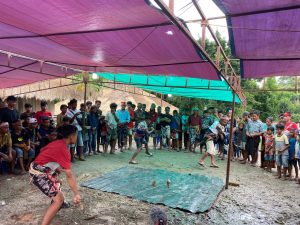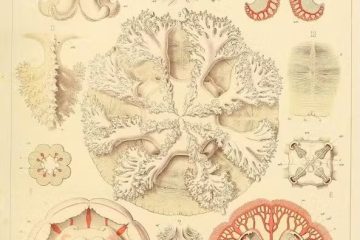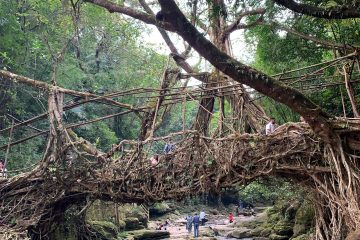Shallow Pluralism and Indigenous Communities in Indonesia
By Jear Nenohai

Since the passing of Indonesia’s Minister of Education and Culture Regulation no. 27 of 2016, concerning “Education Services for Belief in God Almighty in Education Units,” indigenous communities and adherents to (or community local beliefs and practices not understood as religion) have been subject to this form of education. This act is commonly referred to as: “Belief in God Almighty Education/Pendidikan Kepercayaan.” Before the implementation of this regulation, the Indonesian government only provided educational services for the six recognized religions: Christianity, Confucianism, Islam, Catholicism, Buddhism, and Hinduism. Some scholars call these the official religions because prior to 2017 in Indonesia the government only provided social welfare for these six religions, including educational programs and funding. The addition of Pendidikan kepercayaan is a way for the Indonesian state to provide space for and recognition of education in indigenous religions and the beliefs and practices known as penghayat kepercayaan. As of 2020, 2,868 indigenous religious students have received educational services as a result of this act. In my homeland of East Nusa Tenggara, Pendidikan kepercayaan educational services have been implemented among the Marapu indigenous community on the island of Sumba.
As a policy politically designed to recognize indigenous groups, including pendidikan kepercayaan is still not fully inclusive. Anna Amalia, of the Centre for Religious and Cross-Cultural Studies in Jogjakarta, critiqued the Minister of Education and this 2016 regulation. She argues that religious education is based on a SEN (special education need) framework. The SEN framework signifies that the government recognizes pendidikan kepercayaan as a form of special education for students from indigenous communities. She argues that, by placing community/indigenous education outside the domain of religious education and under “special education needs”, it implicitly creates new patterns of discrimination against indigenous communities. The Pendidikan kepecayaan education efforts are regulated under the Ministry of Education, whereas education by the six official religions is managed by the Ministry of Religion. This division reinforces the idea that indigenous communities and those who practice pendidikan kepercayaan are not religious groups. To illustrate the problem, I examine the discriminatory experiences of the Marapu Religious group in Sumba.
Marapu’s Indigenous Community in Sumba
The Marapu community in Sumba is one of the many indigenous religions that have existed in Indonesia long before the creation and founding of the nation in 1945. The Marapu community is also one of the many indigenous groups in Indonesia that has long been discriminated against due to the Indonesian standard of what counts as religion. In Indonesia, a community ought to be recognized as religion if they can contain concepts of God, Holy texts, and structures of worship. Samsul Maarif of the Center for Religious and Cultural Studies in Jogjakarta, critiques this standard for its bias to a world religion’s paradigm. Inherent in this bias is a bias toward monotheistic traditions, and especially toward religion as understood by the Christian euro-western world. By using the world religion paradigm, the Indonesian government excludes indigenous religion and categorizes them as irreligious, animist communities.
As a marginalized group, numerous studies have revealed that Marapu-believing students have been exposed to various forms of violence in educational settings prior to the passing of the 2016 act. They were compelled to study and practice religions contrary to their own beliefs. Since the publication of the 2016 regulation regarding Religious Education Services, six schools (at this writing) have provided Marapu religious education. This support for the Marapu students ends, however, when it comes to government policies that respect the Marapu Indigenous relationship with the rest of the natural world. Since 2012, the Marapu community in East Sumba has been contending against Djarum (cigarettes) and Wings (cleaning and sanitary products), two of the biggest commercial factories in Indonesia, who seized the forest that was traditionally Marapu territory. The forest . The forest is a sacred place and must be preserved. Umbu Deta among others have emphasized that for Marapu the forest is a subject, just like humans.
The forest is thought of as sacred in many indigenous religions in Indonesia. What is the government’s position? As expected, the 2016 act has not made much of a difference. In 2021, governor Viktor Laiskodat of the East Nusa Tenggara Province, the province where the Marapu are located, called the Marapu indigenous people ‘monkeys’, in response to their protests against deforestation. After outcries from many, he apologized to the Marapu leader but did not stop the use of their forests by corporations. We can see here that the presence of a bill that includes pendidikan kepercayaan is a form of shallow pluralism: the passing of the act does not stop the destruction of the peoples sacred forests. This example mirrors a common occurrence for indigenous groups in Indonesia. Because they have for so long been disregarded as following proper religions, their sacred places and practices are ignored and various forms of discrimination against them persist. In my ongoing work, I have found that many local Christian churches around Marapu, such as the Gereja Kristen Sumba (Sumba Christian Church), still regard the Marapu community as animists that need conversion.
Though the 2016 act argues that indigenous communities ought to study their own indigenous perspectives, the entire act is under the ministry of education and not the ministry of religion, which reflects the ongoing bias toward the “official religions” in Indonesia. Were their sacred places and rituals protected by the Ministry of Religion, perhaps the deforestation would end. Just imagine the outcry if a company began tearing down mosques or churches. I argue, then, that indigenous traditions and Pendidikan kepercayaan ought to be regulated under the Ministry of Religious Affairs alongside the other six official religions. The Ministry of Religion, with the Indonesian Constitutional Court Decision no. 97 of 2017, has argued that the Indonesian government consider no religion as official or unofficial (page 136). All religion, in other words, should be equal under the Indonesian constitution. The standard of religion and religious education should come from the community, not the state. In order to dismantle state discrimination against indigenous and local communities, in the Indonesian context the protection of local practices and beliefs on the part of the Ministry of Religion must extend to protection of sacred places.
#
Jear Nenohai is pursuing a Master of Arts at the Center For Religious and Cross-Cultural Studies, Graduate School, Gadjah Mada University, Yogyakarta.
Counterpoint blogs may be reprinted with the following acknowledgement: “This article was published by Counterpoint Navigating Knowledge on 10 October 2023.” The views and opinions expressed on this website, in its publications, and in comments made in response to the site and publications are those of the author(s) and do not necessarily reflect the views and opinions of Counterpoint: Navigating Knowledge, its founders, its staff, or any agent or institution affiliated with it, nor those of the institution(s) with which the author is affiliated. Counterpoint exists to promote vigorous debate within and across knowledge systems and therefore publishes a wide variety of views and opinions in the interests of open conversation and dialogue.



